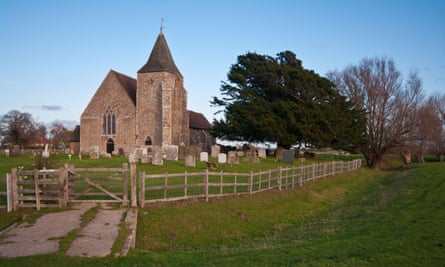England and Wales are no longer Christian: shock. Christians a minority for the first time since the dark ages. We are among the most godless nations on Earth. According to the 2021 census, the number of us ticking the Christian box has fallen to less than 48%. While Christian Pentecostalism is booming, barely 12% are members of the national Church of England. More of us now go to a mosque each week than to a parish church. Those of “no religion” have tripled since the millennium, to 37%.
Ethnic minorities now comprise 18% of the population, and form majorities in cities such as Birmingham and Leicester. This means Muslims and Hindus have made up some ground for religion, as such. In one sense, the picture that emerges from this census is improving. Daily headlines may condemn racism and discrimination, but this should not conceal the advances in diversity, equal rights and opportunities compared with England and Wales in the 20th century. According to Opinium research, more of us regard our society as being more tolerant now than it used to be. In few overseas cities do you see such a mix of races as on a our streets or television screens. The politics of Northern Ireland seem so archaic only because it is one part of the UK where religion was until recently a matter of life and death.
That said, that this is no longer a majority-Christian country cannot be ignored. Historians such as Tom Holland continue to insist that it remains a “Christian” country. It does so by virtue of its history and state institutions – parliament opens with “prayers” – and in the belief system that underpins its political values. But the case for dismantling the Church of England’s relationship with the state is now overwhelming. The church cannot retain the monarch as its governor “by the grace of God”. It should retire from its prominence in state and civic ceremonies, remembrance days, judicial oaths, the BBC and the daily service. The church cannot justify its privileged access to state schools and its reserved seats in parliament, the latter perk shared only with Tory party donors.
The C of E’s hold on the monarchy was born of an earlier Brexit, that of the Henrician Reformation. This was designed to affirm British Protestantism against a hostile Catholicism, with the king replacing the pope. King Charles should declare this tradition obsolete. He is shortly to be crowned and “anointed” as monarch in a religious service representing just the Anglican 15% of his subjects. Modern hereditary monarchs, such as those of Denmark, Sweden and Spain, are “proclaimed” in a secular, democratic parliament.

The king in council should appoint a commission to advise on disestablishment in advance of his coronation. It could go further, and reform the entire House of Lords. There is a place for ceremony and history, but Queen Elizabeth’s constitutional antiquarianism was contingent on her age, and was her unique selling proposition. Again, those days are over.
That leaves an Anglican estate stretching the length and breadth of the land, its churches dominating every city, town and village. Half the nation’s Grade I-listed buildings are medieval churches. Of these, only cathedrals seem able to maintain their appeal – their attendances are actually rising – but this seems partly as places of peace and personal meditation, and a communion with music and architecture. Cathedrals are for people of all faiths and none.
Parish churches are the real challenge. Plenty are active, their clergy performing many social functions an ailing welfare state cannot handle. But their property portfolio is out of all proportion to the church’s needs. These buildings are a dominant presence in almost every community, with thousands lying dark, empty and redundant.
after newsletter promotion
The message of the new census is that these buildings, where they cannot sustain congregations, should be “denationalised” and localised. Surveys show that few people want their church buildings to disappear. They should pass to local parish or town councils, to trusts or other local institutions, whether faith-based or secular. These churches were built from the tithes and taxes of local people and to local responsibility they should go.
This is hardly novel. It happens across Europe. Nations as secular as ours, such as Sweden, Switzerland, Denmark and Germany, have modest (mostly voluntary) local church taxes to keep these building in repair for community use. This must make sense, and the initiative should come from the church.
Such reforms are hardly radical. They would recognise the census shift from a religious state to a secular one, reflecting an ever more diverse society. As for the church, rather than be dragged whingeing into the 21st century, it should be seen as leading the way.
Simon Jenkins is a Guardian columnist











